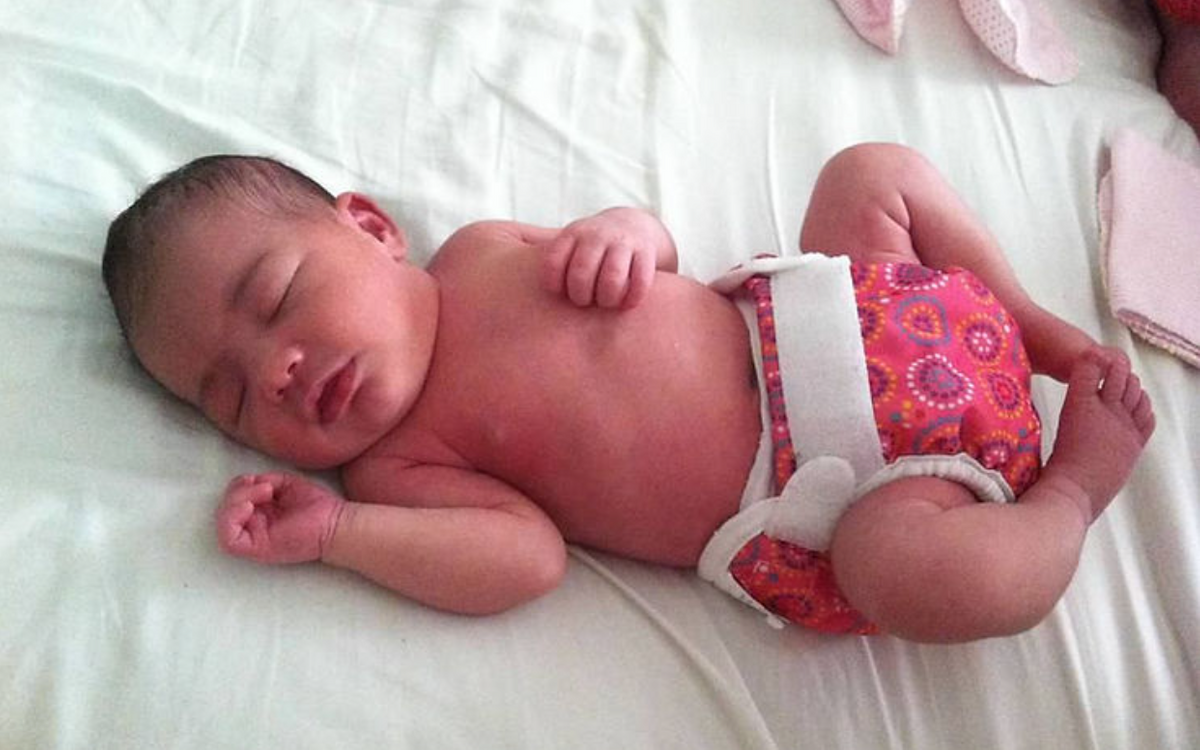
Cloth Diapering a Newborn
Sadie Cora, TCO Advocate
Updated: Jan 30, 2022
So you’re expecting a newborn? Congratulations! Whether you or your partner is pregnant or you are growing your family by fostering or adopting, there’s nothing like welcoming a new baby to your family. Newborns have unique diapering needs, whether you use cloth diapers or disposables. They need frequent changing and they poop all the time, and don’t always sleep long stretches.
If you are interested in cloth diapering your newborn, it’s totally possible! Because newborns are often less than 10 pounds - smaller than the size “one size” cloth fits, many families who want to use cloth from birth purchase or borrow a separate newborn stash to use until baby fits into one size. It’s the same as using cloth at any other stage - there are lots of options, and it can be tricky to navigate!
Newborns go through a lot of diapers, so think about how frequently you’ll be washing. My newborn went through about 20 cloth changes a day, which is on the high end. We used prefolds and covers, and loved the jelly roll fold for how it held in those runny newborn poops. The only time we had leaks was if a bit of the prefold wasn’t tucked in to the cover. Alice was around 7 lb at birth, so we used our newborn diapers for a while! We loved Thirsties and Bummis NB/XS size covers, although now that I have seen tons of cloth diapers there are other brands that I wish I had tried as well, like Happy Flute.
If you’re cloth diapering from birth, you may be worried about baby’s first sticky meconium poops. Don’t worry - they wash right out of the cloth diapers! So meconium isn’t a reason to delay using cloth, unless you’re wanting to wait for other reasons. Newborn poops absolutely can stain - but drying your diapers in the sun will make them disappear. It’s almost like magic! Another plus side to newborn diapering is that if baby is exclusively breastfed, the poop is water soluble so doesn’t need to be rinsed before washing.
Another consideration is diaper creams. Sometimes babies of any age need a barrier cream to protect their skin. Choosing a diaper cream doesn’t need to be complicated, and we know that families consider lots of different factors when choosing a cream. If you choose something petroleum based (or if your doctor suggests it), you may want to use a liner with synthetic fiber diapers to avoid potential repelling issues. If you use natural fiber diapers, such as flats, prefolds, or cotton or hemp fitteds, you can use any cream, including petroleum based creams, if you wash on hot. Other diaper cream ingredients you may want to be on the lookout for are zinc oxide (which may leave a stain), and certain waxes or clays that may also stain.
There are many options for newborn cloth diapers!
What about cloth diapering in the hospital?
If you’re having a hospital birth, you may be wondering if you can bring your cloth diapers. Usually the answer is yes! Just check with your medical team and find out their policies so that you can be prepared. Some hospitals may even provide cloth diapers to use while you’re there! Just remember that sometimes things don’t go as planned, and that’s okay. Alice was transferred to the NICU, so even though we put her first cloth diaper on in the hospital after birth, we put cloth on pause until we came home.
Worried about the cost of a separate newborn stash? Borrow some from The Cloth Option! We provide loaned newborn stashes for families for whom the cost of starting cloth is a barrier. Our local advocates will support you as you transition to cloth, and you can return the newborn diapers for one size once you’re done with them!
The bottom line: newborn cloth diapering is totally doable if you choose to do it! There are lots of options for newborn size diapers that will work until baby fits into one size cloth.
Sadie Cora is a founding TCO advocate who lives in Western Massachusetts. Alice is about to turn 10 years old!
